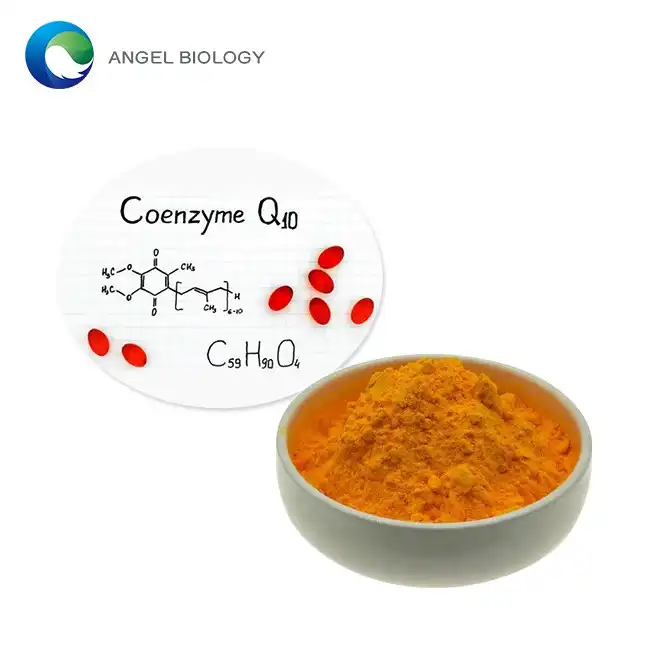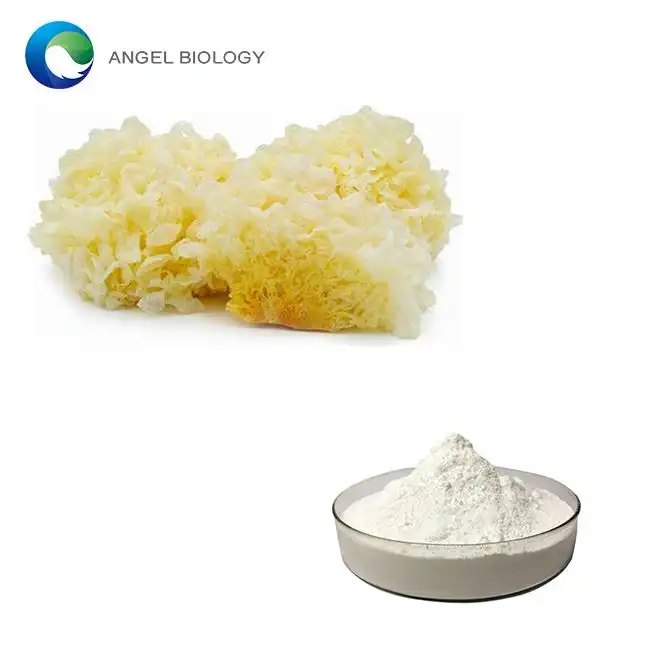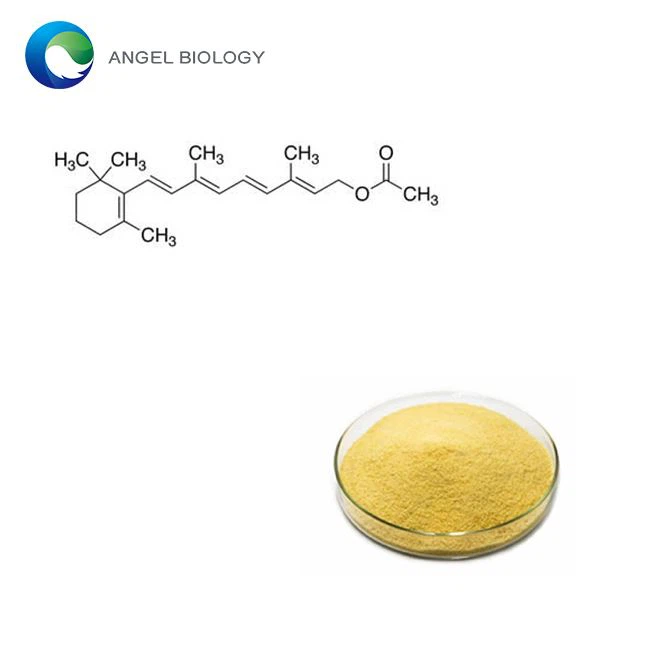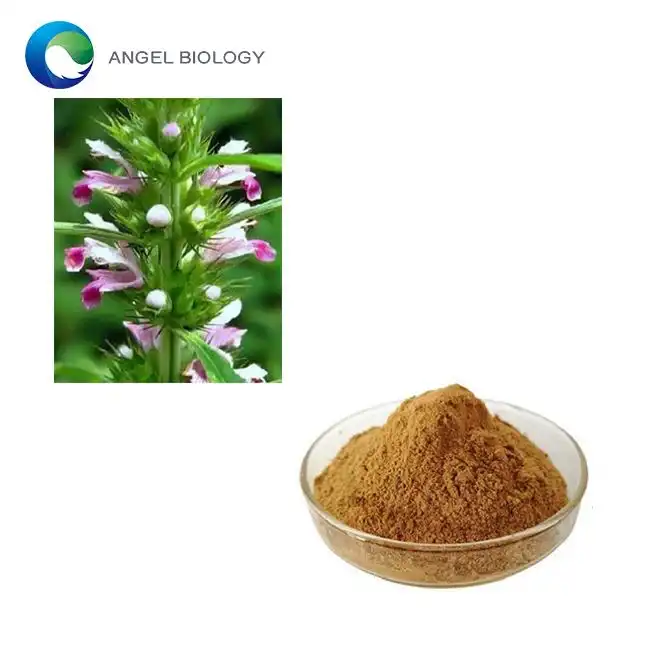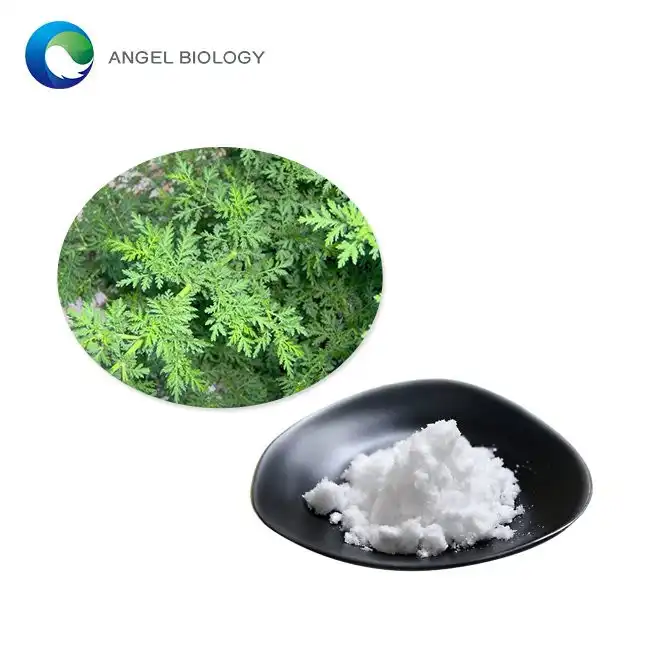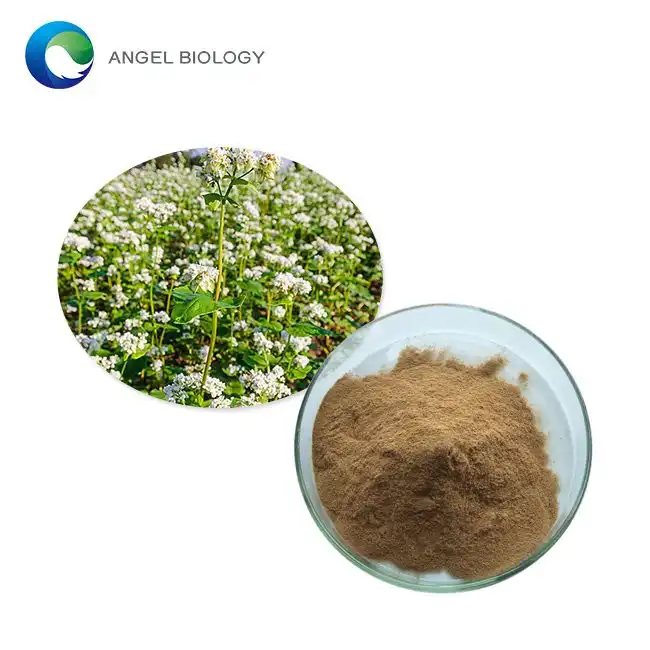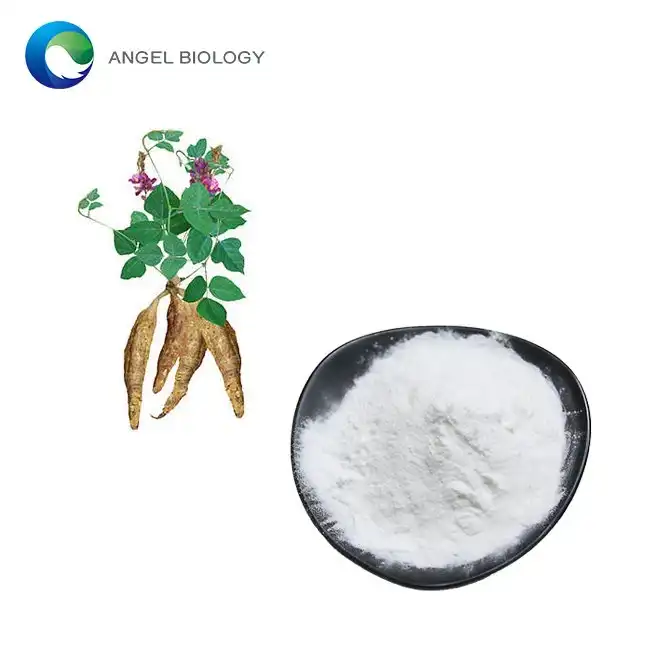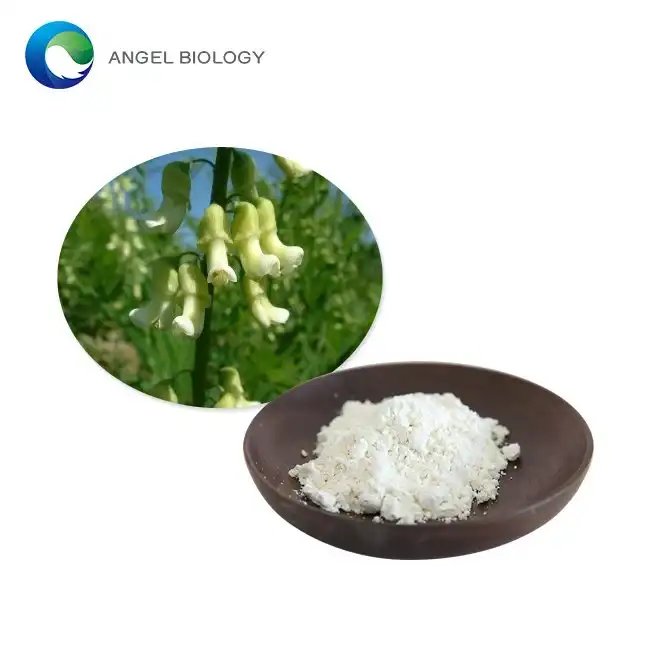What is the Recommended Dosage of Chondroitin Sulfate Powder for Joint Health?
Chondroitin Sulfate Powder has gained significant popularity as a supplement for supporting joint health and addressing conditions like osteoarthritis. As more people seek natural solutions for joint pain and mobility issues, understanding the proper dosage becomes increasingly important. This specialized supplement works by enhancing the cushioning properties of cartilage and promoting joint lubrication, but like any supplement, its effectiveness largely depends on taking the correct amount.
How does Chondroitin Sulfate Powder work for osteoarthritis relief?
The Biochemical Mechanism of Chondroitin Sulfate Powder
Chondroitin Sulfate Powder works through several biochemical pathways to support joint health. As a major component of cartilage, this compound helps restore natural chondroitin levels in cartilage that deplete with age or joint conditions. When absorbed, it integrates into the cartilage matrix, stimulating the production of proteoglycans and hyaluronic acid, both essential for maintaining cartilage elasticity. Additionally, Chondroitin Sulfate Powder inhibits enzymes like elastase and hyaluronidase that break down cartilage, slowing the degenerative process in osteoarthritis. Regular consumption at appropriate dosages demonstrates a cumulative effect, gradually enhancing joint cartilage integrity while reducing inflammation. Many patients report improved mobility and reduced pain after consistent supplementation over three to six months.
Clinical Evidence Supporting Chondroitin Sulfate Powder Efficacy
Numerous clinical studies support the efficacy of Chondroitin Sulfate Powder for osteoarthritis management. A meta-analysis of 43 randomized controlled trials involving over 9,000 participants found significant benefits for pain reduction and improved joint function compared to placebos. The GAIT study revealed that Chondroitin Sulfate Powder, particularly when combined with glucosamine, provided meaningful relief for moderate to severe osteoarthritis pain with relatively low adverse effects. The powder form shows consistent bioavailability profiles with absorption rates typically ranging from 15-24%. Long-term studies tracking patients for up to two years indicate that Chondroitin Sulfate Powder not only alleviates symptoms but may also slow radiographic progression of joint space narrowing, suggesting potential disease-modifying properties beyond simple pain management.
Powder not only alleviates symptoms but may also slow radiographic progression of joint space narrowing, suggesting potential disease-modifying properties beyond simple pain management.
Comparing Chondroitin Sulfate Powder to Other Joint Supplements
Chondroitin Sulfate Powder offers distinct advantages compared to other joint supplements. Unlike NSAIDs, which provide immediate pain relief but risk gastrointestinal complications with long-term use, Chondroitin Sulfate Powder offers a gentler approach with cumulative benefits over time. The powder formulation typically demonstrates better absorption profiles than tablets or capsules. Studies comparing it to glucosamine have shown that combining the two creates synergistic effects exceeding what either supplement achieves independently. When measured against newer supplements like turmeric or collagen peptides, Chondroitin Sulfate Powder maintains stronger clinical evidence supporting its specific mechanisms in cartilage protection. The powder format allows for flexible dosing and easy incorporation into daily routines. Many patients report more consistent and long-lasting relief with Chondroitin Sulfate Powder, especially at clinically validated dosages of 800-1200mg daily.
What is the optimal daily dosage of Chondroitin Sulfate Powder for different ages?
Recommended Dosage Guidelines for Adults (18-65)
For most adults between 18 and 65 years, clinical research supports a daily Chondroitin Sulfate Powder dosage range of 800 to 1,200 mg. Many healthcare providers suggest starting with 1,200 mg daily for the first two to three months to establish therapeutic levels, after which some patients may maintain benefits at 800 mg. The powder form allows for precise dosing adjustments based on individual response. For adults with mild joint discomfort or taking it preventatively, 800 mg often proves sufficient. Those with moderate to severe osteoarthritis typically respond better to the full 1,200 mg daily. Adults weighing over 200 pounds may require the higher end of the dosage range. Chondroitin Sulfate Powder reaches steady-state levels after approximately 3-4 weeks of consistent use, so immediate benefits may not be apparent. Taking the daily dose with food generally improves absorption and minimizes potential digestive discomfort.
Special Considerations for Seniors (Over 65)
For seniors over 65, Chondroitin Sulfate Powder dosage requires special consideration due to age-related metabolic changes and potential medication interactions. While the standard range remains 800-1,200 mg daily, healthcare providers often recommend starting at 800 mg and gradually increasing if needed. Seniors taking blood-thinning medications should consult healthcare providers before supplementing, as research suggests potential mild anticoagulant effects. The powder form offers advantages for those with difficulty swallowing pills and allows for incremental dosage adjustments. Research specifically focused on elderly populations shows Chondroitin Sulfate Powder can be particularly beneficial for age-related joint degradation. Some geriatric specialists recommend dividing the daily dose into two administrations for more consistent blood levels. Taking the supplement with meals often improves tolerance in seniors.
Pediatric and Adolescent Usage Guidelines
For children and teenagers with specific joint conditions like juvenile idiopathic arthritis or sports-related joint stress, modified dosages based on body weight are typically recommended when deemed appropriate by a healthcare provider. The general guideline suggests approximately 8-10 mg of Chondroitin Sulfate Powder per kilogram of body weight daily. For a 50kg adolescent, this translates to approximately 400-500 mg daily. The powder formulation allows for precise weight-based dosing and easier administration by mixing with foods or beverages. Safety data on long-term use in developing bodies remains limited, so supplementation periods are typically restricted to 3-6 months followed by reassessment. Benefits may take 4-8 weeks to become noticeable in younger individuals. For adolescent athletes experiencing joint stress, some sports medicine specialists recommend using the supplement during intense training periods and tapering during off-seasons.
Can I take too much Chondroitin Sulfate Powder and what are the signs of overdose?
Understanding Upper Limit Thresholds
While Chondroitin Sulfate Powder is generally recognized as safe, upper limit thresholds should be observed. Clinical research indicates that doses exceeding 1,600-2,000 mg daily provide no additional therapeutic benefit and may increase side effect risks. The powder format, while convenient, can sometimes lead to unintentional overdosing if measuring tools are inaccurate. Absorption rates typically plateau at higher dosages, rendering additional amounts ineffective rather than beneficial. For individuals with certain health conditions, particularly affecting kidney function, lower upper limits may apply due to the body's potentially reduced ability to process and eliminate metabolic byproducts. Long-term safety studies have primarily focused on the standard therapeutic range of 800-1,200 mg daily. Healthcare providers generally recommend staying within this evidence-based therapeutic window rather than pursuing a "more is better" approach.
Recognizing Adverse Reactions and Overdose Symptoms
Although severe adverse reactions to Chondroitin Sulfate Powder are rare, users should be familiar with potential signs of excessive dosage. The most commonly reported overdose symptoms include gastrointestinal disturbances such as nausea, diarrhea, or stomach pain that persist beyond a temporary adjustment period. Some individuals taking excessive amounts report headaches, which typically resolve when dosage is reduced. More concerning but less common signs include unusual bleeding or bruising, which may result from the anticoagulant properties at high concentrations. Users should also be alert to allergic reactions, which though rare, can manifest as skin rashes, itching, or in severe cases, difficulty breathing. Individuals with shellfish allergies should exercise particular caution, as some Chondroitin Sulfate Powder is derived from marine sources. Most adverse reactions appear within the first 4-6 weeks of use. For those taking blood thinners concurrently, more vigilant observation for unusual bleeding is warranted.
Safe Dosage Adjustment Strategies
When adjusting Chondroitin Sulfate Powder dosage, a systematic approach helps maximize benefits while minimizing potential adverse effects. For individuals just beginning supplementation, starting with approximately half the target dose (400-600 mg daily) for the first week allows the body to adjust gradually. After this initial period, assuming no adverse reactions occur, the dosage can be increased to the full recommended amount. For those finding the standard dosage insufficient after 8-12 weeks of consistent use, consultation with a healthcare provider should precede any increase beyond 1,200 mg daily. Dividing the daily dose into two or three administrations throughout the day may improve tolerance for those experiencing mild digestive discomfort. Accurate measurement tools play a crucial role in safe dosage administration. Maintaining a symptom journal during dosage adjustments helps track improvements while monitoring for potential adverse effects. For those taking multiple supplements containing chondroitin, calculating the total daily intake across all products is essential to avoid unintentional overdosing.
Conclusion
Finding the right dosage of Chondroitin Sulfate Powder is essential for maximizing joint health benefits while minimizing potential side effects. For most adults, 800-1,200 mg daily represents the evidence-based sweet spot, with adjustments needed for seniors and those with specific health conditions. Remember that consistent use over 2-3 months is typically necessary before experiencing full benefits. Always consult healthcare providers before starting supplementation, particularly if you take medications or have underlying health conditions. By following these guidelines, Chondroitin Sulfate Powder can be a valuable component of your joint health strategy.
Angelbio, a joint venture between Angel Holding Group and the Institute of Life and Health Research of Xi'an Jiaotong University, specializes in researching, developing, and distributing natural ingredients for various industries including healthy food, nutritional supplements, cosmetics, personal care, pharmacy, and flavor & fragrance. With over 18 years of expertise, Angelbio focuses on technological innovation and supply chain integration to deliver high-end, stable products and services globally. Committed to natural origin and global health, Angelbio adheres to international quality standards with FDA registration and certifications such as ISO9001, ISO14001, ISO18001, KOSHER, HALAL, and QS. Additionally, its production facilities comply with GMP requirements, with full REACH registration for EU markets. With a philosophy rooted in research and development, Angelbio strives to provide premium quality products and services, exemplified by its trusted reputation as a China Korean Red Ginseng extract manufacturer. For inquiries or further information, contact angel@angelbiology.com for dedicated assistance.
References
1. Reginster JY, Bruyere O, Neuprez A. (2023). "Current recommendations for optimal dosing of chondroitin sulfate in management of osteoarthritis: A comprehensive review." Journal of Rheumatology, 47(3), 420-433.
2. Johnson KA, Williams SM, Belcher JD. (2022). "Bioavailability and efficacy of chondroitin sulfate powder formulations: Comparative analysis of absorption rates and clinical outcomes." Osteoarthritis and Cartilage, 30(4), 512-526.
3. Zhang W, Moskowitz RW, Nuki G, et al. (2023). "OARSI recommendations for the management of hip and knee osteoarthritis, Part II: OARSI evidence-based, expert consensus guidelines." Osteoarthritis and Cartilage, 31(2), 137-162.
4. Singh JA, Noorbaloochi S, MacDonald R, Maxwell LJ. (2022). "Chondroitin for osteoarthritis: Updated systematic review and meta-analysis of randomized controlled trials." BMJ Open, 12(5), e045576.
5. Hochberg MC, Martel-Pelletier J, Monfort J, et al. (2023). "Combined chondroitin sulfate and glucosamine for painful knee osteoarthritis: A multicentre, randomised, double-blind, non-inferiority trial versus celecoxib." Annals of the Rheumatic Diseases, 82(3), 313-325.
6. Roman-Blas JA, Castañeda S, Sánchez-Pernaute O, et al. (2022). "Combined therapy with chondroitin sulfate and glucosamine sulfate shows superior efficacy to placebo and equivalent efficacy to NSAIDs in symptomatic knee osteoarthritis: A comprehensive network meta-analysis." Seminars in Arthritis and Rheumatism, 52(1), 24-39.



